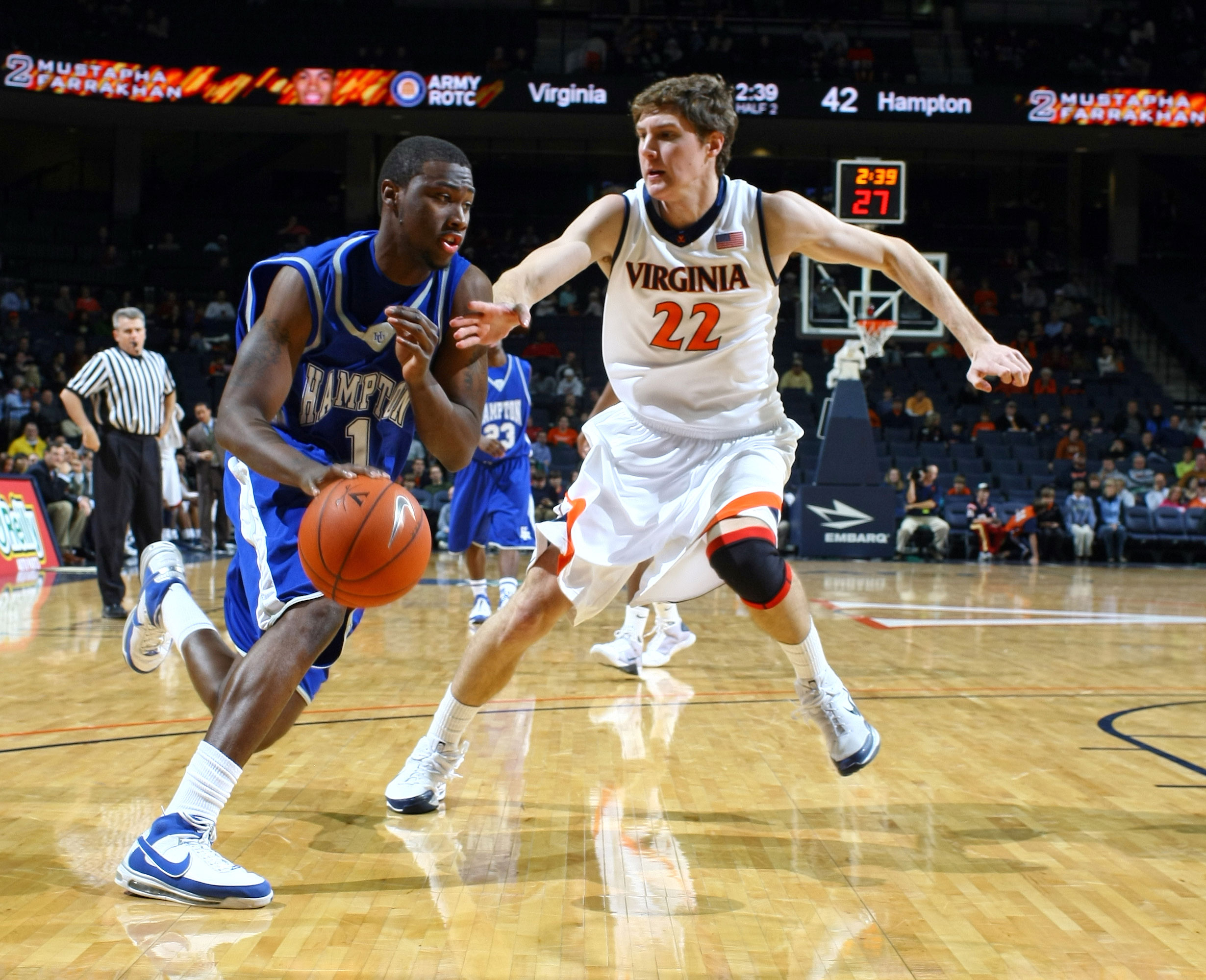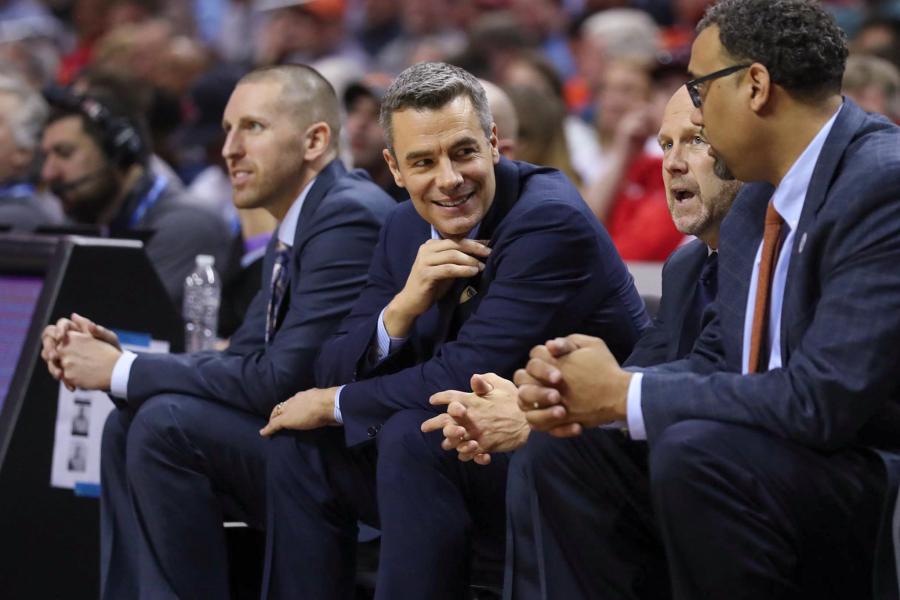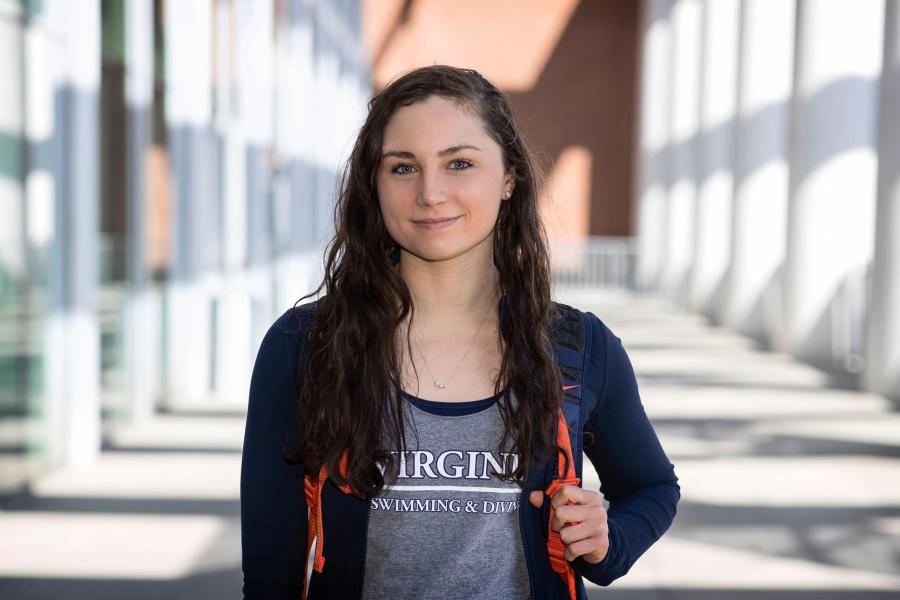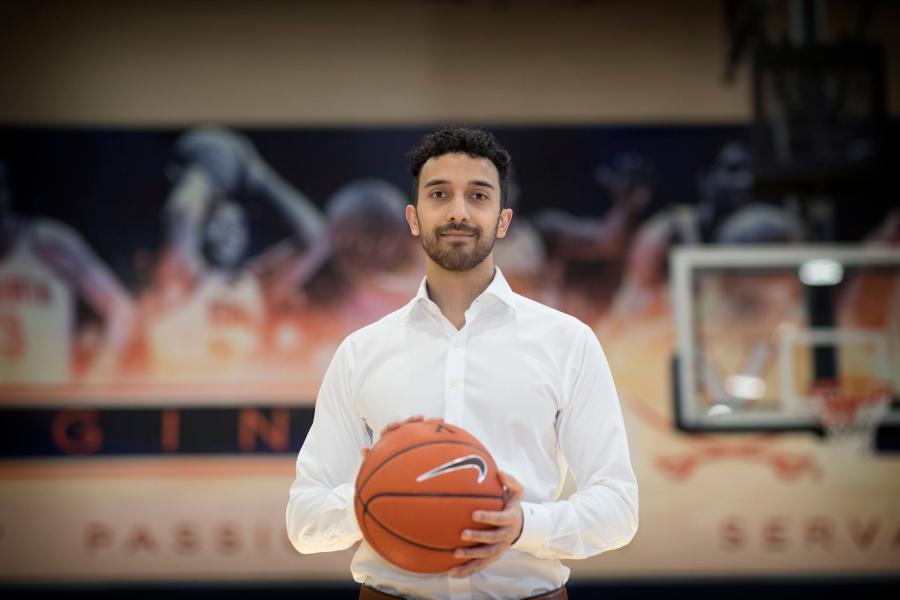Q. That first year under Coach Bennett, you guys really struggled.
A. Yeah, but even though we struggled, Coach Bennett was just consistent. He was the same every day. He didn’t change. He didn’t play favorites and was very secure in building the kind of program he wanted to build. He was going to do it the right way.
He was a great players coach, down to earth, easy to relate to. And then from a tactician standpoint, a great basketball coach. I knew it was just a matter of time.
Q. Could you ever envision where he’s taken the program to now?
A. Honestly, yeah. I knew that he was a really good coach and that at UVA there was no reason why they shouldn’t have a great basketball program, considering where it is in the country, the conference it plays in, the facilities. I thought there was no reason why he couldn’t build a legacy for himself at UVA like Mike Krzyzewski had built at Duke where, when you think of Duke basketball, you think of Coach K. When you think of UVA in 20 years, you’ll think of Tony Bennett.
Q. Is it pretty cool to be the very first walk-on to earn a scholarship under Coach Bennett in what now has become almost an annual tradition?
A. Honestly, I don’t really think about that as much. I think more about the fact that I came in and didn’t play at all my first couple years because I wasn’t good, put the work in to get on the floor and then was captain by the time I was a senior. Those are the things I think about the most.
The scholarship thing was a great gesture, but it was more of a result of the hard work and just getting better. That’s kind of how I view it.
Q. What were your personal highlights from your career? Fans might remember your coming-out party in that early-season tournament in Cancun.
A. Yeah, I had played kind of reserve duty here and there for a few games prior to that. That was my first year getting meaningful minutes. Then in Cancun I came in [against Cleveland State] and made five [three-point shots] in the second half. That kind of, I guess, came out of nowhere. My career high, prior to that, was something like three points and I finished with 18 points. That was definitely one that I’ll always remember, for sure.
After that game, I had a consistent spot in the rotation and people were starting to say, “Will Sherrill is a good player. He’s not just a hustle guy.”
Q. But then you broke your leg twice your senior year?
A. Yeah, injuries, you can’t control them. That was a frustrating year from that standpoint. But on Senior Night, I had another big game and it was a really nice way to cap off my career after all the ups and downs.
And just being able to be coached by Coach Bennett and be a part of the program was special. From Day One, he had the pillars of the program, and you knew what we stood for even when we struggled. There are always things you wish would have gone better, but just the opportunity to be a part of his program and be coached by him and his staff is just something I’m forever grateful for.
Q. Which of your former teammates have you kept up with?
A. Definitely Sam [Zeglinski]. He and I lived together [at UVA]. I try and see him as much as I can. I keep up with Joe [Harris] a lot, because he now lives here in the city. I see him every so often. And at the Florida State game this year, I saw Tunji [Soroye], Solomon [Tat], Calvin [Baker] and guys I hadn’t seen much over the last few years and was able to catch up.
Q. In terms of style of play, how did your early teams compare to the ones you see now?
A. They’ve done some things this year to open it up a little bit. You have a number of [future] NBA guys on the team and that certainly helps. But the emphasis on defense certainly hasn’t changed. That’s exactly the same as when I was there.
Q. How far do you think they can go?
A. The one thing about a slower style is that there are fewer possessions and every possession counts. So if you have a bad shooting night, it puts a lot more stress on you, like we saw last year against UMBC.
But the thing I’ll say about the team this year is that on offense they get better shots consistently. They’ve made some tweaks to space things out, get more ball screens and look at the rim, but I think overall the main thing is the combination of having very good players and a few tweaks that Tony has made offensively has led to them getting much higher-quality shots. From that standpoint, that’s really the key – not having to depend on late-in-the-shot-clock three-pointers. That’s how you get beat in the tournament.
So in terms of how far can they go? I think they’re definitely capable of playing in the national championship, for sure. But any team can be beat, so …
Q. What did you take away from your overall UVA experience?
A. Things don’t always turn out how you want them to. There are things that are out of your control. It’s just about investing everything into something, and if it doesn’t work out, it doesn’t work out. If you commit to something fully, you’ll never have regrets.
For me, looking back on my time at UVA, yeah, I wish I had Tony for all four years; that would have been great. I wish I hadn’t been hurt my senior year; that would have been great.
But as I’ve gone on to the working world, I know that you have to invest everything, and you just get things done. If you’re going to do anything, you have to be committed 100 percent, otherwise you’re not going to achieve what you want to achieve. And you still may not achieve what you want to achieve, but committing yourself 100 percent – that’s table stakes.





